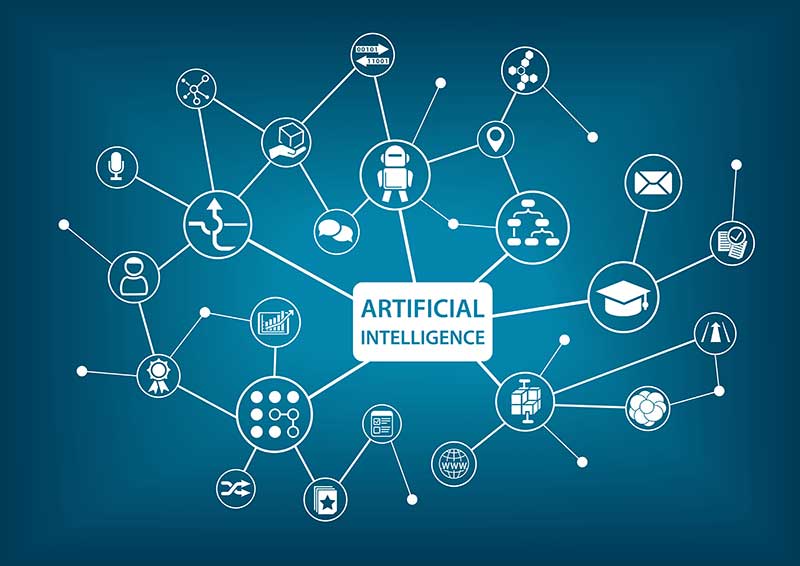The impact of artificial intelligence on the built environment
Contents |
[edit] Introduction
Built environment professionals believe that artificial intelligence is going to have a significant impact on how they work – according to a survey conducted over summer 2017 by ICE.
The survey results revealed:
- 73% of built environment professionals think that AI will have a significant impact on their organisations.
- 78% of built environment professionals are positive about the impact of AI on the sector.
[edit] Key findings from industry AI workshop
The potential impact of AI on the built environment sector was also discussed at a workshop convened by ICE and the National Infrastructure Commission.
Attendees included tech companies, civil engineers, contractors and academics.
The discussion was split into 4 sessions. The key findings were:
[edit] Performance
AI will lead to substantial improvements to the design and delivery of infrastructure, in turn boosting productivity levels. But in order for this to be realised there is a need to embed data expertise across the sector.
[edit] Transition
Piloting and testing is necessary if machine learning and AI technologies, together with robotics and virtual reality, are to transform the built environment. Likewise, cultural change and leadership across industry is needed to drive the AI revolution.
[edit] Governance and data
The pace of technological change and the data requirements associated with AI mean that creating a governance framework is very challenging. Issues around privacy, security and intellectual property also need addressing.
[edit] Skills and ethics
Civil engineers of the future will require different training and skillsets to get to grips with AI, including greater crossover with other disciplines like social sciences. There is also an immediate need for interested parties to work together to create solutions to the ethical question marks that exist in relation to AI.
[edit] Future ICE research and discussions into AI
ICE plans to hold further round-tables and workshops to explore these big issues and themes in more detail. There are many other questions that the built environment sector should explore in relation to AI including:
- In what areas should the built environment sector concentrate efforts to pilot AI?
- How can an approach to project procurement that favours long-term value over lowest cost be incentivised?
- How should the application of AI in the built environment sector be taught in civil engineering degree courses?
For more information and to read the full findings from the workshop see here.
This article was originally published on 11 Sept 2017 by ICE. It was written by Ben Goodwin, ICE Policy Manager.
--The Institution of Civil Engineers
[edit] Related articles on Designing Buildings Wiki
- 5G, AI and construction in China.
- Articles by ICE on Designing Buildings Wiki.
- Artificial intelligence and civil engineering.
- Artificial intelligence and surveying.
- Augmented reality in construction.
- Construction is an industry ripe for tech disruption.
- Engineering in the 21st century.
- The impact of digital on civil engineering.
- The readiness of UK companies to adopt new digital technologies.
- The rise of 5G in buildings.
- Virtual reality and manufacturing.
Featured articles and news
UKCW London to tackle sector’s most pressing issues
AI and skills development, ecology and the environment, policy and planning and more.
Managing building safety risks
Across an existing residential portfolio; a client's perspective.
ECA support for Gate Safe’s Safe School Gates Campaign.
Core construction skills explained
Preparing for a career in construction.
Retrofitting for resilience with the Leicester Resilience Hub
Community-serving facilities, enhanced as support and essential services for climate-related disruptions.
Some of the articles relating to water, here to browse. Any missing?
Recognisable Gothic characters, designed to dramatically spout water away from buildings.
A case study and a warning to would-be developers
Creating four dwellings... after half a century of doing this job, why, oh why, is it so difficult?
Reform of the fire engineering profession
Fire Engineers Advisory Panel: Authoritative Statement, reactions and next steps.
Restoration and renewal of the Palace of Westminster
A complex project of cultural significance from full decant to EMI, opportunities and a potential a way forward.
Apprenticeships and the responsibility we share
Perspectives from the CIOB President as National Apprentice Week comes to a close.
The first line of defence against rain, wind and snow.
Building Safety recap January, 2026
What we missed at the end of last year, and at the start of this...
National Apprenticeship Week 2026, 9-15 Feb
Shining a light on the positive impacts for businesses, their apprentices and the wider economy alike.
Applications and benefits of acoustic flooring
From commercial to retail.
From solid to sprung and ribbed to raised.
Strengthening industry collaboration in Hong Kong
Hong Kong Institute of Construction and The Chartered Institute of Building sign Memorandum of Understanding.
A detailed description from the experts at Cornish Lime.


























Comments
Really good post! If you are interested in AI, don`t skip to check our new article. You will find very interesting questions and answers by Rob Charlton! https://geniebelt.com/blog/industry-experts-talk-ai-rob-charlton-on-the-future-of-artificial-intelligence-in-construction